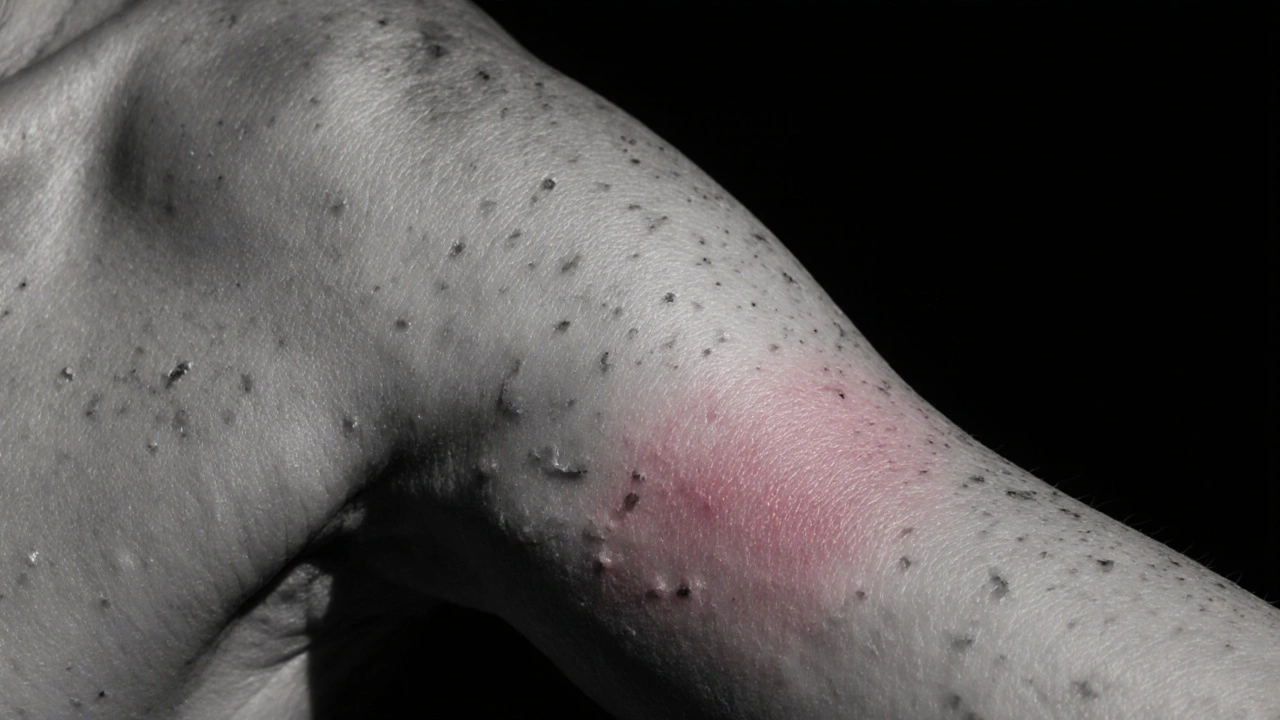Dry Skin: Causes, Relief, and When to Seek Help
When dealing with dry skin, a condition where the outer layer of the skin loses moisture and feels tight, rough, or itchy. Also known as xerosis, it affects millions and often signals deeper health clues. Dry skin isn’t just a cosmetic annoyance; it can signal skin barrier dysfunction, chronic inflammation, or an underlying systemic issue. People who notice persistent flaking or cracking should ask themselves if they’ve changed soaps, started a new medication, or experienced shifts in hormone levels.
How Everyday Factors Impact Dry Skin
One major driver is medication side effects, the unwanted reactions a drug can cause in the body. Many prescriptions listed in our health library—like the MAO‑B inhibitor rasagiline or the cancer drug nilotinib—note skin dryness as a possible adverse event. Even common over‑the‑counter antihistamines, which you might reach for during allergy season, can dry out your skin by reducing natural oils. If you’ve started a new drug and notice your skin feeling tighter, it’s worth checking the drug’s side‑effect profile.
Another frequently overlooked cause is thyroid disorders, imbalances in thyroid hormone production that affect metabolism and skin health. Both hyper‑ and hypothyroidism can lead to skin changes, but it’s the low‑thyroid (hypothyroid) state that most often results in a dry, scaly texture. The hormone imbalance slows down the turnover of skin cells, leaving a rough outer layer. If you’ve been diagnosed with hyperthyroidism or hypothyroidism, pay attention to how your skin feels—adjusting medication dosages can sometimes restore normal moisture levels.
And let’s not forget the simple yet powerful role of skin moisturizers, products that add or seal in water to keep the skin barrier intact. A good moisturizer isn’t just a luxury; it’s a therapeutic tool. Look for ingredients like ceramides, hyaluronic acid, or glycerin, which mimic the skin’s natural lipids and attract water. Applying a cream right after a shower locks in moisture, while lighter lotions work well for daytime use. Pair moisturizers with lukewarm showers and fragrance‑free cleansers for the best results.
All these pieces fit together: dry skin encompasses skin barrier dysfunction, requires targeted moisturizers, and can be driven by medication side effects or thyroid imbalances. The relationship between systemic health and skin health means you’ll often see overlap with other topics in our collection—like eye inflammation during allergy season, appetite changes with cancer therapies, or stress‑related flare‑ups in Crohn’s disease. Below you’ll find articles that dive deeper into those connections, offering practical steps you can take right now. Whether you’re looking for a quick remedy or trying to understand a deeper health signal, the posts ahead give you a roadmap to healthier skin and overall well‑being.

 Oct, 17 2025
Oct, 17 2025